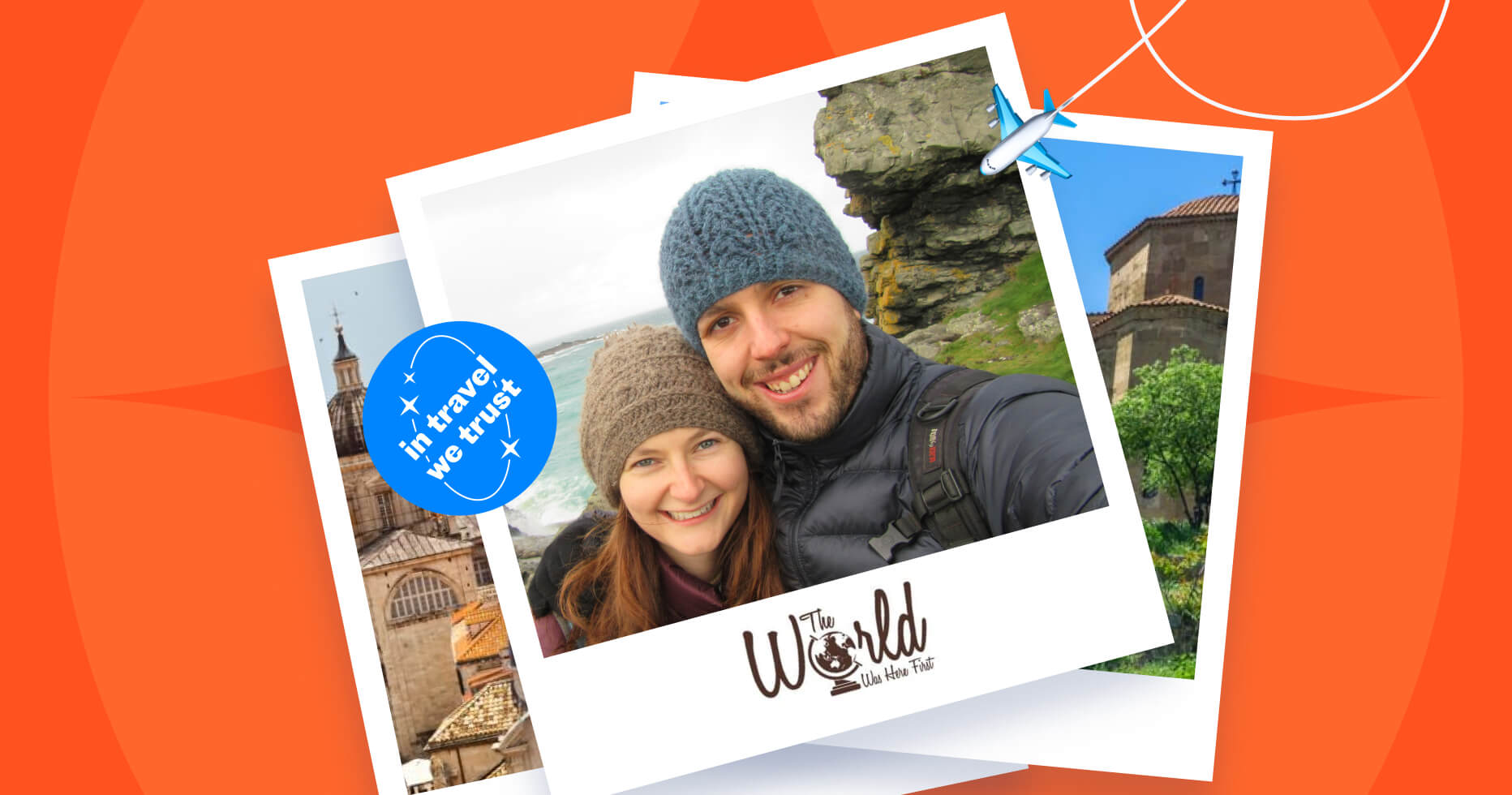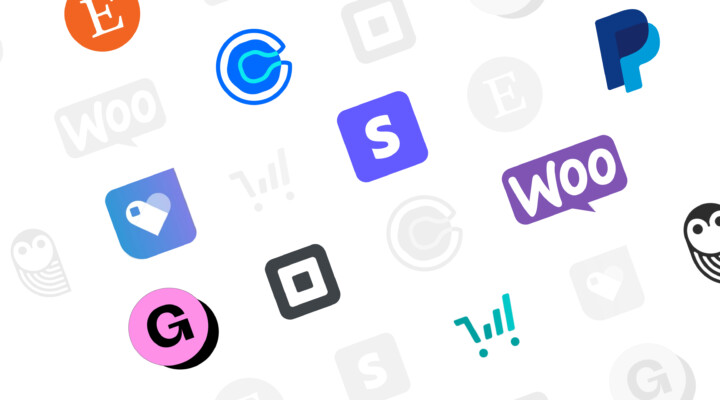How It All Began
We met when travelling solo through the Balkans in 2016. Maggie is originally from the USA with a background in teaching English, while Michael is from Australia with a background in marketing and analytics.
In 2017, we started The World Was Here First. We originally started the blog to document our travels throughout Central and Eastern Europe, though the project has expanded over time to include destinations in the UK & Ireland, Southern Europe, North America, and more.
Our blog was a side project for a couple of years, but we have been working on it full time since 2019.
We both share a love of travelling and discovering new destinations as well as the flexibility and freedom that this job provides. These things continue to inspire us to keep working on our website.
How We Drive More Traffic to Our Blog
While we were aware of the importance of SEO when we started out, we didn’t really know how to implement it properly, which meant that most of our initial traffic was reliant on social sharing. For example, to this day, we get traffic from Pinterest.
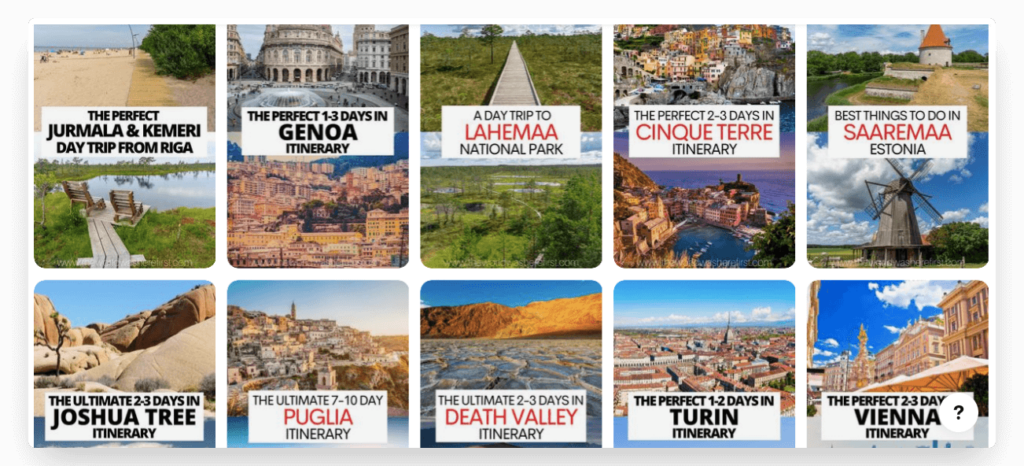
Now, our main source of traffic is from organic search, which is where we primarily focus our efforts. We have managed to increase our traffic significantly by focusing on writing articles with detailed keyword research and ensuring that we batch our content by writing multiple pieces about a single destination.
We use a combination of KeySearch, SERanking, and Ahrefs for research. This means that we are often looking to expand on destinations that we’ve previously visited and have become authorities on, so anybody planning a trip there will have all the relevant information on a single site.
While we do look at popular metrics, such as keyword volume and difficulty, it’s always important to remember that these are estimates and not to treat them as 100% accurate.
In particular, any one article will rank for a number of keywords, so it’s important to assess the content potential across multiple keywords rather than a single keyword.
If you’re starting out in SEO, we would recommend looking at the free resources that Ahrefs publishes on both their blog and YouTube channel. They even have a free course you can take.
Traffic From Email
Another source of traffic is our email list. We focus on growing our email list by creating new lead magnets for different destinations. For example, for readers landing on our Spain content, we would offer a downloadable mini-guide to Spain if they sign up to our mailing list.
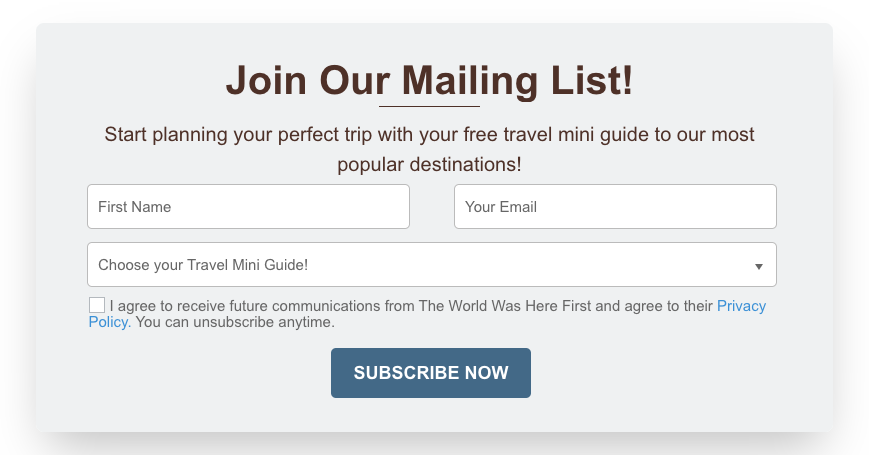
How We Create Our Content
Maggie writes the majority of the content, which is based on trips that we have gone on ourselves. We also hire freelance writers to create additional articles. We have primarily hired our writers by advertising jobs on Indeed.
We tend to write about or hire writers that can expand on destinations that we have travelled to previously or are nearby to areas that we have already covered.
For example, after we travelled through California & Arizona, we hired writers to cover parts of the state that we didn’t visit. We also hired additional writers for nearby regions, such as Colorado and the Pacific Northwest.
As our goal is to be an authority on the destinations we write about, it was difficult to do this while relying purely on us travelling to those destinations. Hiring writers has allowed us to significantly scale our content and boost our earnings in less time than it would take if it were just the two of us travelling to every destination.
To be a successful content creator, you really need to have reader intent in mind when creating content. In other words, you need to consider what information your readers are looking for and how you can help them find a solution.
How We Monetize Our Blog
We monetize our blog through display advertising and affiliate marketing. The type of monetization that performs best will vary dramatically based on the type of post you publish. Thus, it’s important to consider that when selecting a topic.
For example, inspiration-style posts might be great for getting a boost of traffic from social media, so it’s best to increase ads as affiliate conversations will be lower considering that those visitors will be less likely to be ready to book a trip.
On the other hand, we find that posts about planning trips tend to work best for affiliate conversion of items like hotels, tours, and transportation.
Affiliate Marketing
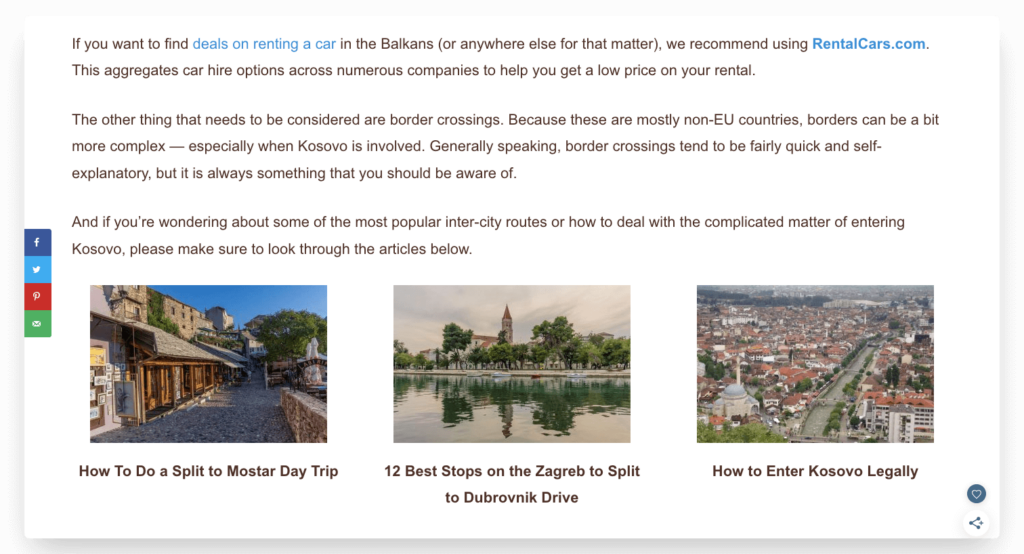
We use a range of different travel affiliate programs, including some through aggregators, such as Travelpayouts, Skimlinks, and Avantlink, and some direct programs, such as Booking.com, GetYourGuide, Viator, and Amazon.
Aggregators like Travelpayouts are a great way to test a range of different programs and see what works best for your website. Particularly, if you’re just starting out, this will help you learn what works for your audience and help you reach the minimum payout thresholds quicker.
Join the Travelpayouts partnership platform
Join todaybrands
Most of the affiliate tracking we use is done by tracking performance within the specific program, though we also spend time combining the data to ensure we have an overall picture of which posts perform best across all programs combined, based on metrics like RPM.
Affiliate Marketing Tips
- The key to having success with affiliate marketing is to strategically place affiliate links within posts that match reader intent and not just add a ton of links and hope for the best.
- While we do find that you’ll receive more click-throughs to affiliate links if your link is near the top of the article, it’s also important to keep the reader in mind and ensure that you answer the question that they’ve come to your article for. If you can find a topic to write about that solves the reader’s query with an affiliate link as part of the solution, then it’s a win-win situation!
- Think about where your readers are coming from and ensure that the options you provide are suitable for that audience. Certain destinations might appeal more to North American travelers, while others might appeal to more European taste. It’s important to consider differences in travel styles and preferences.
- Track everything from day one. It’s really difficult to know what is and isn’t working if you don’t set up proper tracking and analytics. So, make sure to label all your affiliate links to ensure that you know what drives conversions. Then use that data to refine your affiliate marketing in the future.
Advice for Those Who Want to Start a Blog
One of the realizations that we have come to over the last couple of years is that it’s important to not focus on the things that other people tell you that you should be doing and instead really think about what has the biggest impact on your business.
While it can still be challenging to find the time to do everything that we want, we have become a lot better at prioritizing what’s important and what moves our business forward.
Want to share your story? Travelpayouts welcomes all bloggers with any travel-related experience. Write to us at an@travelpayouts.com with the following subject: “Story for the Travelpayouts Blog”.

